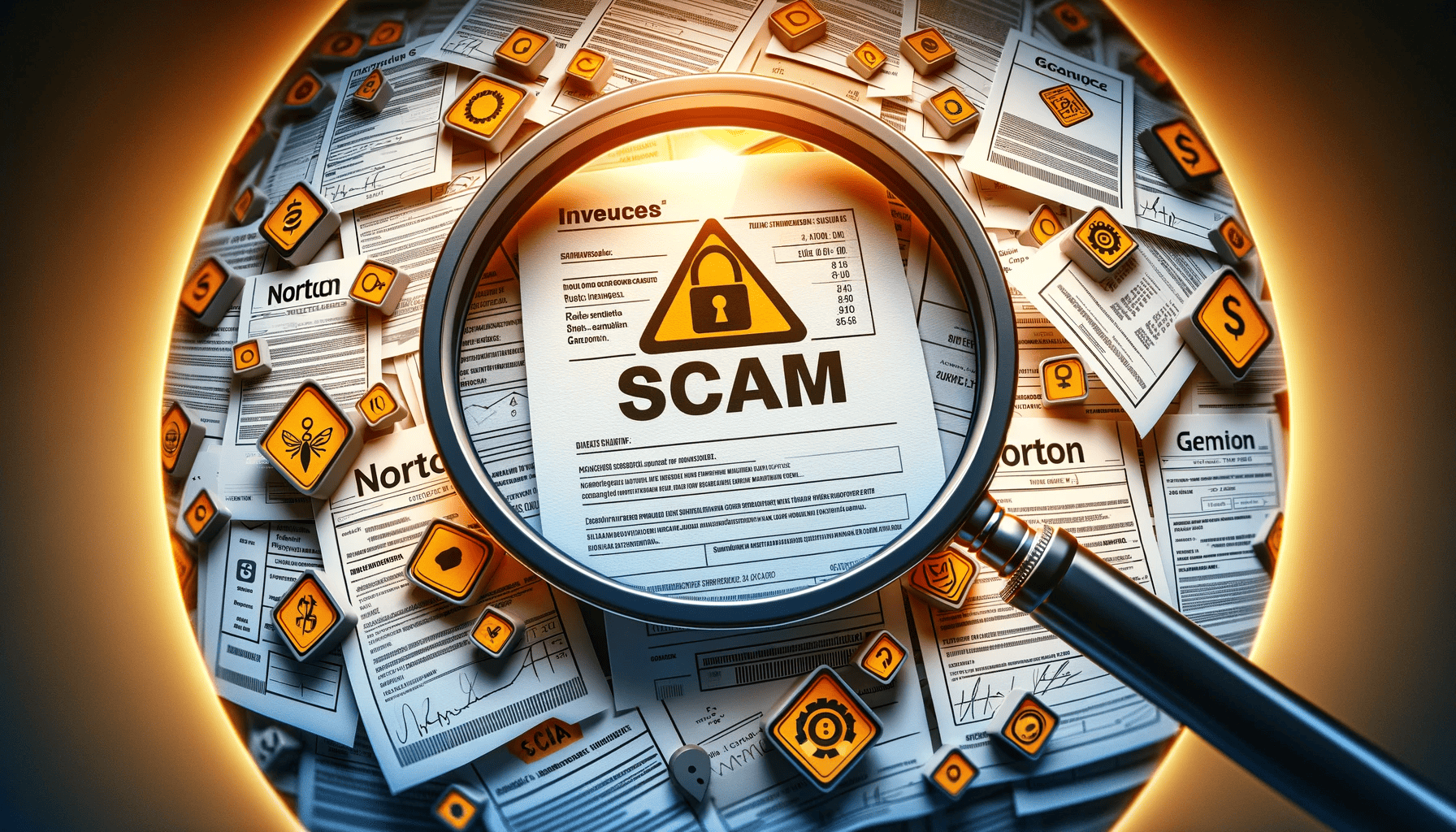In today’s digital age, it has become increasingly common for scammers to target consumers through fake invoices and deceptive billing tactics. These fraudulent operations can take many forms, from seemingly legitimate-looking emails or letters demanding payment for services never rendered, to subscription traps that trick people into signing up for unwanted products or memberships. Regardless of the specific method, the goal is always the same: to illegally obtain money from unsuspecting victims. In this comprehensive guide, we will explore the various types of fake invoice scams, how to identify them, and what steps you can take to protect yourself and your finances.
Understanding Fake Invoice Scams
Fake invoice scams are a form of fraud where individuals or criminal organizations attempt to deceive consumers into paying for goods or services that were never actually provided. These scams often rely on creating a sense of urgency or fear, using intimidating language and threats of consequences for non-payment. The invoices themselves may appear legitimate at first glance, featuring company logos, detailed billing information, and even threats of legal action if the supposed debt is not settled.
One common tactic employed by scammers is to send fake invoices for domain name renewals, web hosting services, or office supplies that the recipient never ordered. Another prevalent scam involves sending fake invoices for publications or directory listings that the targeted individual or business did not request or agree to.
Subscription Traps and Recurring Billing Scams
Subscription traps and recurring billing scams are closely related to fake invoice schemes. In these scenarios, scammers lure consumers into unknowingly signing up for a paid subscription service, often through deceptive tactics such as burying the terms and conditions in fine print or using pre-checked boxes on websites. Once the initial payment is made, the scammers continue to charge the victim’s credit card or bank account on a recurring basis, making it difficult to cancel the unwanted subscription.
These scams can be particularly insidious as they may initially appear legitimate, offering a free trial or a low-cost introductory offer. However, hidden in the fine print are details about the recurring charges that will begin after the trial period ends. Victims may not even realize they have been scammed until they scrutinize their bank or credit card statements and notice the unauthorized charges.
Identifying Fake Invoice Scams
While fake invoice scams can be sophisticated and appear convincing, there are often telltale signs that can help you identify them. Here are some common red flags to watch out for:
1. Unsolicited invoices or bills: If you receive an invoice or bill for a product or service you never ordered or requested, it is likely a scam.
2. Lack of specific details: Legitimate invoices will typically include detailed information about the goods or services provided, such as dates, quantities, and descriptions. Fake invoices may be vague or lack these specifics.
3. Threats or intimidating language: Scammers often use aggressive language, threatening legal action or consequences for non-payment, to pressure victims into paying.
4. Suspicious company or contact information: Carefully scrutinize the company name, address, and contact details provided on the invoice. Illegitimate or non-existent companies are common in fake invoice scams.
5. Unrequested subscription charges: If you notice recurring charges on your credit card or bank statement for a subscription service you did not intentionally sign up for, it could be a subscription trap scam.
Protecting Yourself from Fake Invoice Scams
While fake invoice scams can be alarming and frustrating, there are several steps you can take to protect yourself and your finances:
1. Be vigilant and scrutinize all invoices: Before paying any invoice, carefully review it for accuracy and verify that the goods or services were actually received. If you have any doubts, contact the company directly using a known and trusted contact method. READ FULL STORY HERE>>>CLICK HERE TO CONTINUE READING>>>
2. Keep records of purchases and subscriptions: Maintain thorough records of all purchases, subscriptions, and transactions you make. This will help you identify any unauthorized charges or invoices more easily.
3. Be cautious of unsolicited offers and free trials: Approach unsolicited offers for free trials or low-cost introductory offers with skepticism, especially if they require providing payment information upfront.
4. Monitor your accounts regularly: Regularly review your credit card and bank statements to identify any unauthorized or suspicious charges. Set up account alerts to receive notifications of unusual activity.
5. Use credit cards for online purchases: When making online purchases or signing up for subscriptions, use a credit card instead of a debit card or direct bank account payment. Credit cards offer better fraud protection and the ability to dispute unauthorized charges more easily.
6. Be wary of vague or intimidating language: If an invoice uses vague or threatening language, or lacks specific details about the goods or services provided, it may be a scam. Legitimate companies typically provide clear and detailed invoices.
7. Report suspected scams: If you suspect you have been targeted by a fake invoice scam, report it to the appropriate authorities, such as the Federal Trade Commission (FTC) or your local consumer protection agency. Reporting these scams can help authorities track and potentially shut down fraudulent operations.
Taking Legal Action Against Fake Invoice Scams

In some cases, victims of fake invoice scams may decide to take legal action against the scammers or organizations responsible. However, it’s important to note that pursuing legal action can be a complex and costly process, and the chances of successfully recovering any lost funds may be slim, especially if the scammers are operating from outside the country.
If you choose to take legal action, it is advisable to consult with a qualified attorney who specializes in consumer protection or fraud cases. They can advise you on the strength of your case, the potential legal avenues available, and the associated costs and risks.
Additionally, you may be able to file a complaint with the appropriate regulatory bodies or law enforcement agencies, such as the Federal Trade Commission (FTC), your state’s Attorney General’s office, or the Internet Crime Complaint Center (IC3). While these agencies may not be able to directly recover your losses, they can investigate and potentially take legal action against the scammers, helping to prevent others from falling victim.
Conclusion
Fake invoice scams and deceptive billing tactics are unfortunately becoming increasingly prevalent in today’s digital landscape. By being vigilant, scrutinizing all invoices and bills, monitoring your accounts regularly, and being cautious of unsolicited offers and free trials, you can significantly reduce your risk of falling victim to these scams.
Remember, legitimate companies will always provide clear and detailed invoices for goods or services rendered, and they will never use intimidating or threatening language to demand payment. If you suspect you have been targeted by a fake invoice scam, do not hesitate to report it to the appropriate authorities and seek legal advice if necessary.
Protecting yourself from these fraudulent schemes requires ongoing vigilance and education. By staying informed and taking proactive steps to safeguard your finances, you can help prevent scammers from successfully targeting you and others through fake invoices and deceptive billing practices.


 IN-THE-NEWS10 months ago
IN-THE-NEWS10 months ago
 METRO2 months ago
METRO2 months ago
 IN-THE-NEWS11 months ago
IN-THE-NEWS11 months ago
 METRO8 months ago
METRO8 months ago
 SPORTS9 months ago
SPORTS9 months ago
 HEALTH & LIFESTYLE10 months ago
HEALTH & LIFESTYLE10 months ago
 METRO4 weeks ago
METRO4 weeks ago
 IN-THE-NEWS11 months ago
IN-THE-NEWS11 months ago



